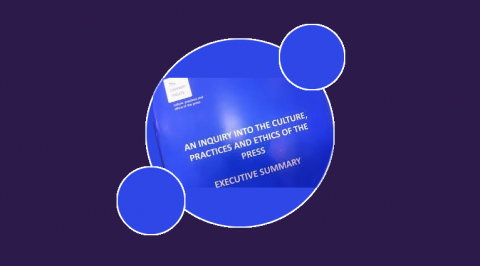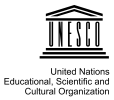
Milly Dowler a 14- year old British girl on her way to school in Walton -on- Thames on 21st March 2011 was murdered.
Dowler’s murder featured most in the investigation in the News of the World phone scandal and it was revealed in 2011 that News of the world reporters had accessed her voice mail while she was reported missing. There was a public outcry in Britain questioning the standards of the media in handling issues. This prompted the Prime Minister David Cameroon to set a committee led by Lord Justice Leveson to investigate the media conduct.
The inquiry was to look into phone hacking and Police bribery by the News of the World, with the other inquiry into the culture and ethics of the wider British media. It started in July 2011 with a series of hearing and gathering of evidence into the investigations and published in November 2012.
For Long, the media in the UK was running from its obligation and its conduct was worth an inquiry. This act among other things insinuated Premier Cameroon to institute an inquiry into the conduct of the media. This later came to be known as Leveson inquiry
The Peak of inquiry was the misconduct by the media hacking into Milly Dowler’s phone by the News of the World reporters. On many occasions reporters hired private investigators to get them a story which they deemed special to their audience.
The inquiry unleashed many loopholes in the conduct of the journalists ranging from cultural, practices and ethics of the press.
Deleting information was concern in UK media. The reporters were getting and later delete it. The missing of Milly Dowler where the reporter hacked into her phone when the voicemail was full, deleted important information which compromised Police investigations.
Journalists’ nature of unrelenting especially in getting special news report ended up doing evil some were chasing sources or victims to take their photos, constant calls or even going to their doors. This resulted into publication of stories that were private and upsetting, without the consent of the victims
That showed that when journalists were pursuing what they regarded as important stories, their ethics and laws governing their practice were compromised.
In the report particularly at the News of the World, there was no defined person to manage and comply with the set ethical standards of the media. This meant that there was access for individual data and its publication without the consent of the victims.
Information misrepresentation was common in the British media. Journalists pursuing crucial stories had tendencies of inaccuracies and errors in their reportage, without getting a fair comment on the aggrieved person. Thus the media obligation of providing accurate information was turned into misinformation and propaganda platforms.
The UK journalists were using convert surveillance and deceptions to make stories news worthy and acceptable to the public. The media recklessness in setting the agenda or gate keeping was questionable
The media did not only resort to this mode but also self censored any story that would damage the image of the advertisers. To add value to the product that these media houses offered, many resorted to celebrate news. The celebrities no longer had any privacy yet they were worth having it.
Although the media cannot survive without money, there was need to balance between the demands of the advertisers and the public.
Even the Regulatory body, the Press Complaints Commission failed to live to its objectives of providing leadership, disciplining and protecting the journalists. It was not mandatory for the journalists to join the regulatory body before practicing journalism in the UK
The Leveson inquiry with its recommendations can be replicated here in Uganda.
The inquiry recommended the establishment of an independent regulatory body, backed by legislation as a means of regulating the media. The body would be independent of the serving journalists, editors and government officials, encouraging the press to be transparent in dealing with the sources and source material for its stories.
Leveson in the report believes that a free press was necessary (self regulation) where government has no power over what is published.
According to the report, the high degree of demonstrable independence from both political and commercial interests is crucial to a self regulatory system in achieving the public trust that is required. “I encourage the new body to be open to being able to deal with complaints even where legal action is a possibility and to equip itself to be able to deal with complaints alleging discrimination” said Leveson.
An arbitration system should be created to provide an improved route to justice for individuals. The system would help those offended by the press in its operation to seek for redress without going through courts. The arbitration system would work with the regulator and staffed by the retired judges and with the knowledge dynamics. Such a system would look into resolving disputes inherent.
On contrary, the media houses that may choose not to belong to the regulatory body and found to have infringed on civil law rights should be directly regulated by OFCOM. However, Leveson urged the use of incentives for all publishers to belong to the self regulatory system.
The report recommended the amendment of the Data Protection Act 1998, to include the protection of privacy which was not sufficiently addressed within the Act. The 1998 Act defines UK law on the processing of data on identifiable living persons. The means of acquisition and use of personal information were questionable. Leveson indicated through the Report the need to issue practical guidance to support the press in improving standards and practice in handling personal information. Recommended changes in the law to remove unnecessary procedural red tape and provide fair balance between public interest, freedom of expression and personal information privacy.
Leveson handled a contentious issue of public interest. He says, UK was given significant and special rights in its operation. However, these rights come along with responsibility to public interest, respecting the trust, law and upholding liberties of individuals. Leveson recommended a system under the regulatory body to determine what constitutes public interest. This would help the media to rely on in defining public interest in its conduct
Leveson’s inquiry applicability in Uganda
Just like Lord Leveson recommended the amendment of Data protection Act of 1998, in Uganda there is also need to amend unjust laws that limit the freedom of expression and free press.
The freedom of the Press given in the Constitution article 29 is limited in article 43 and other draconian laws like the anti terrorism act, defamation and in the Penal Code. These regulations are embedded in the Ugandan laws, which directly or indirectly affect the media. A point in case is the Access to Information Act 2004, which limits obtaining information in the disguise of privacy and national security. This limitation is subject to discussion because what constitutes national security, public interest and privacy is not well defined.
A self regulatory system and independent body is crucial to the operation of the media in any country. Leveson recommends a formation of an independent body to regulate the conduct of the media. In the Uganda’s case, such a body would be responsible for the standardisation of the media. Uganda has several media bodies like the National Regulatory Body (Media Council) and subsidiary bodies like Uganda Journalist Association (UJA). These bodies have the mandate on paper to regulate the conduct of media houses and journalists in the country. However the power to monitor and enforce regulations is limited. This relates to the UK’s Press Complaints Commission (PCC) which also failed to monitor the British media.
The Leveson report exposed the failure of a regulatory body in UK. The Press Complaints Commission failed to do its work. UK Prime Minister David Cameroon described it as “ineffective and lacking in rigour”. The commission despite being called a regulator, it did not regulate at all. It lacked independence and was financially constrained, the same applies to Uganda’s media regulatory bodies like Uganda Communications Commission and the Media Council which are financially crippled, cannot handle media complaints or protect journalists from attackers like the Police.
The compositions of the regulatory bodies are equally the same to that of Britain. The PCC was composed of serving media personalities which is also evident in UJA and Media Council. This compromises the standards of regulatory body. It also raises the question of conflict of interest.
The question of public interest remains debatable, in Leveson’s report. Public interest and who determines it raised a lot of pressure nevertheless; Leveson recommended the need for an independent body to define what public interest is. By then, there was widespread trade of private and confidential information with little regard to public interest. Public interest was determined by individual journalists and media. This applies to Ugandans media where public interest is personally determined by editors, journalists and government who are in most cases championing their selfish motives.
In the Leveson report, the approach of news gathering and reportage was characterized with covert surveillance, bragging and deception; this applies to Uganda’s media that publishes stories regardless of the impact. Some stories to the limits of invasion of privacy.
.Arbitration body is urgently needed in Uganda especially where there is a big dispute between the media and other government bodies particularly the Police. So often, the Police confiscate journalists’ property. Though the relationship between the media and public in UK was well, the reserve is true in Uganda. The there are counter complaints against the media and the media practitioners against other government and individual bodies
The media plays a crucial role in informing and influencing policy in any country. However as the media performs this role there arises a need to be monitored and regulated through an independent body.
As suggested by Justice Lord Leveson.
- Log in to post comments




